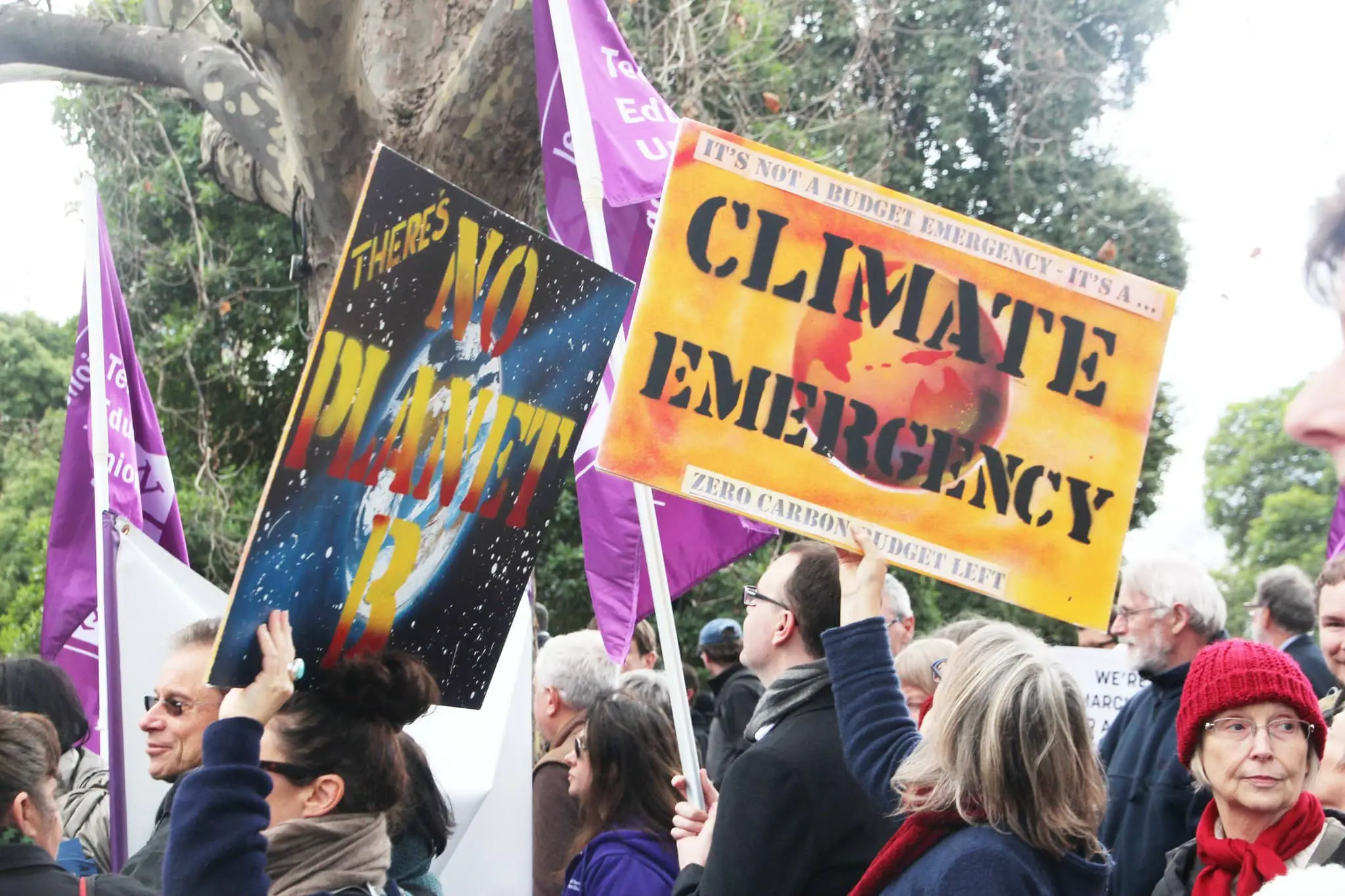OnTheWight always welcomes a Letter to the Editor to share with our readers – unsurprisingly they don’t always reflect the views of this publication. If you have something you’d like to share, get in touch and of course, your considered comments are welcome below.
This from Chris Lloyd, Research Fellow, WorldPop Programme, Dept. of Geography and Environmental Science, University of Southampton and Labour candidate for the 2021 local council elections. Ed
I completely agree with the sentiments expressed by Vix Lowthion (Chair of the Isle of Wight Green Party) in her letter entitled “Are we all green now?” (20th October 2021).
We are experiencing a climate emergency and this needs prioritising at national (as well as local) government level. The Tory government are not moving quickly enough on this issue.
The consequences will be devastating
As a professional Geographer, I am aware that the latest climate promises mooted by Boris Johnson can barely begin to mitigate the UK’s contribution to the problem because there is no real long term plan and investment. This is as has been the case for much of the last 11 years of Tory government.
Further, this lack of UK leadership on the world stage increases the likelihood of global ecological devastation and competition for increasingly scarce resources in the future. The consequences will be famine, war, and population displacement/ forced migration at a global scale well before this century is concluded. Those of us in middle age may well live long enough to see it.
Reconsider your voting habits
Those on the right of the Tory party, who think that we have too many foreigners arriving into this country, would do well to consider for a moment the catastrophic scale of migration that will come our way as a result of continued climate change.
I would ask all recent Tory voters to consider the government’s lack of action on climate, and to please consider voting for a different political party that (come general election time) has properly developed climate policies and the capacity for better global leadership on this issue.
Such leadership should include proper engagement with the current (and potential future) biggest polluting nations/unions (i.e. USA, China, EU, India, Russia, and other key higher, middle, and lower income countries).
Holding Gov to account
Ed Miliband, the Labour Party Shadow Secretary of State for Business, Energy and Industrial Strategy, is doing an excellent job of holding the government to account on their climate promises and delivery.
I take some of the following from his statement to the House of Commons on Tuesday 19th October re. the Government’s Net Zero strategy.
Green transition needs to be fair and create jobs
Emissions from buildings are higher today than in 2015, and the green transition needs to be fair and create jobs.
The commitments of the current government demonstrate a wide gap between promises and delivery. For example, there are no detailed plans for the heat and buildings strategy over the next ten years.
Infrastructure
There are no plans to encourage the uptake of affordable electric cars, or to support improvements to the relevant national infrastructure.
Where are detailed policy (not sound bites) on nuclear, making the steel industry carbon neutral, and investing in hydrogen technology?
Boris Johnson talks big on hydrogen (as on everything else), but the reality is that Germany is offering £9bn for a new hydrogen strategy whereas the UK is offering a mere £240m.
Big talk but little to no substance
It’s the same story when contrasting Denmark’s renewables programme to our own, as well as in many other policy areas.
The lack of climate policy development on the part of this UK government is akin to that seen with the ‘levelling up’ strategy – i.e. big talk but little to no substance. Current UK climate policy fails to aspire to the meeting of 2035 targets.
Empowering citizens
Surely, any sensible UK government should ensure that everyday folk that are fortunate enough to have at least an average standard of living are empowered to make the correct choices in order that we can together mitigate (or, better, reverse) climate change.
Such decisions should be a ‘no-brainer’ both morally and economically.
This means that the government must go much further, much faster. As an example, it is no good for the government to offer simply a £5k grant on £6k-£18k (dependent on property size) heat pump installations.
Heat pump irrelevant if inadequately insulated
Most UK houses are inadequately insulated and so cannot benefit from a heat pump (or do not have the space for one), and it is estimated that the current plan will help just one in 250 UK households.
The plan, of course, assumes that one in 250 UK households can afford and are willing to take up the offer.
Solar panel subsidies
Where is the subsidy for solar panel installations – surely a more practical proposition in the short term?
The Tories scrapped that subsidy in 2015 when the coalition with the LibDems came to an end. Similarly, a subsidy to insulate homes, introduced only last year, has been scraped and a watered down replacement introduced.
Isn’t government promotion of (as yet) essentially unaffordable heat pumps instead of home roof insulation putting the cart before the horse?
Need to recognise the urgency of the climate problem
I appreciate that some older people (in particular) may not want to make lifestyle changes in the face of the climate threat, but we must all think urgently about our children’s and grandchildren’s futures.
We need to recognise the urgency of the climate problem that we all now face as a country and as a global society.
What we can do right now
Whilst, sadly, government policy may not yet be moving quickly enough to allow many of us to change that gas boiler, or to switch to an electric car, there are things that we can do right now.
For example, we can eat less red meat. The strain of meat production on the environment is enormous – the main problems being deforestation and the emissions caused by animal grazing and transportation.
Reduce our travel carbon footprint
We can reduce our travel carbon footprint. This should include minimising our air travel and using public transport (pandemic permitting) instead of the car where possible – also perhaps working from home more often.
We can ensure that our homes are as energy efficient as possible. Actions here can include the installation of roof insulation and/or wall thermal lining (or similar), as well as the installation of energy efficient windows and light bulbs. These are actions that are available now. They are affordable for those of us on average earnings or pensions and will save us all money on our energy bills. The latter is particularly important given the current state of the UK energy market. So a ‘no brainer’?
Trying to appear to be all things to all people
It would of course be helpful if our Prime Minister (a shamelessly unapologetic libertarian right wing populist) desisted in trying to appear to be all things to all people and instead actually took the time to develop some proper policies.
I suppose the lack of both policy planning and development of metrics with which to gauge delivery speaks louder than his words – be that on climate or in any other area of policy.
“Green is good, green is right, green works”
It was on Tuesday 19th, at a post-Brexit Investment Summit in London, that Boris Johnson adapted the words of the fictional banker ‘Gordon Gekko’ (a manipulative corporate psychopath – perhaps appropriate – played by Michael Douglas in the 1980s film “Wall Street”), stating that “Green is good, green is right, green works” – substituting Green for the original word Greed.
The adaption would be laudable, even applaudable as a climate message, were the his words original. But as an adaption the Prime Minister’s words leave a bad taste in the mouth, reminiscent of the worst excesses of the Thatcher era with none of the economic success.
Economic decline with a stale whiff of faux-patriotism
Instead, at present we have economic decline with a stale whiff of faux-patriotism.
Only the day before (Monday 18th), Johnson wrote in the Sun newspaper that “The Greenshirts of the Boiler Police are not going to kick in your door with their sandal-clad feet and seize, at carrot-point, your trusty old combi”.
Surely his persistent self-contradictions undermine both the message and the mission?
Prime Ministerial flipflopping and government
So where does this (un)Prime Ministerial flipflopping and government inaction leave us? What are we going to do about the climate emergency?
The left and centre of UK politics must work together at election time in order to move the climate agenda forward. Otherwise, the undemocratic first past the post electoral system and tribal party politics will lead us to yet more years of national Tory government, and so yet more inaction.
Cross-party ‘Green New Deal’
It is not all bad news. At Westminster, a cross party group of Labour, Green, LibDem, SDLP, Alliance, and Independent MPs are working together and have now launched the ‘Green New Deal’, with an accompanying Bill that was introduced to Parliament this week (written with the help of civil society groups, scientists and unions).
The bill lays out the path for the UK to meet its commitments to stay within 1.5 degrees of global warming, while improving everyday life and delivering on promises made to ‘level up’ the UK. Will the bill pass with a Tory majority of 80? Perhaps not, but the Green New Deal can in any case be put to the electorate as part of party manifestos at the next General Election.
A progressive alliance at election time
Just as it is essential that politicians of the left and centre work together at national level, so it is also vital that the same occurs at local council level in order to implement tailored local green policies with which to support and develop our communities.
On the Isle of Wight, the Greens, Independents, Labour, and the LibDems need to work together as a progressive alliance at election time. Otherwise, we risk splitting the vote and allowing the Tories to regain control of the council in 2025.
Island Tories passively accepted degradation of biodiversity
Through tacit (or explicit) support of the approaches taken by the current national government (be that climate inaction, outsourcing, cuts, austerity, or a plethora of other policy principles) the Island Tories have passively accepted continued degradation of our Island’s biodiversity and waterways over the many years in which they were in charge of the council up until 2021.
They have also actively inflicted great harm to our Island education system and overseen managed economic decline of our high streets and local services.
We must stand firm together and push the progressive agenda.





